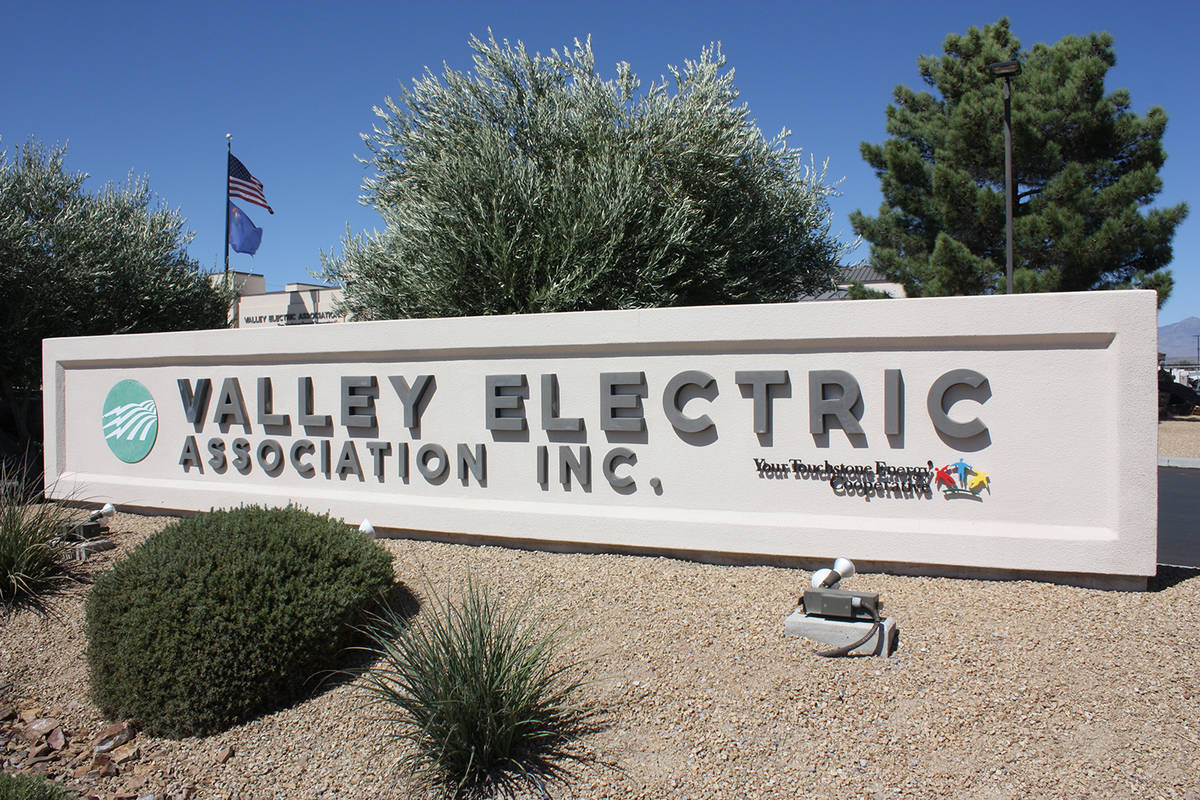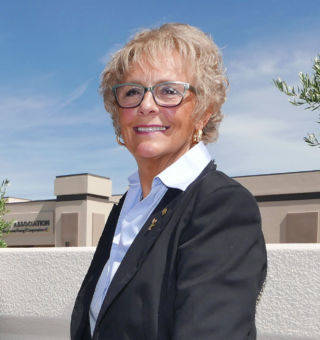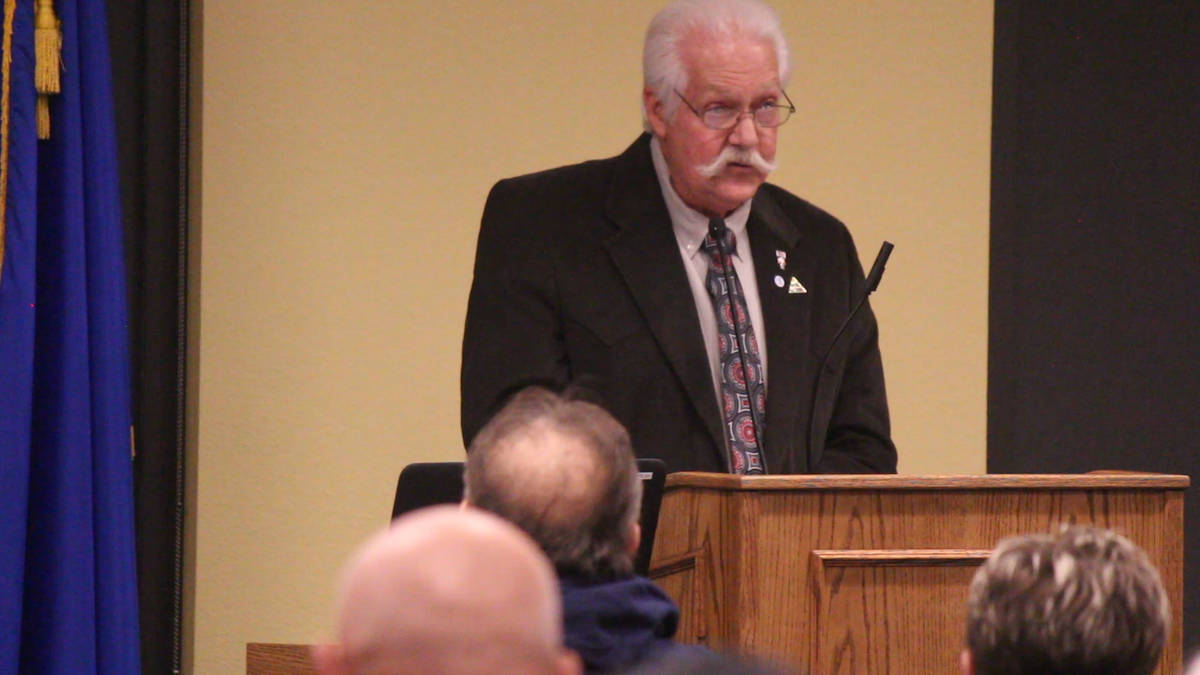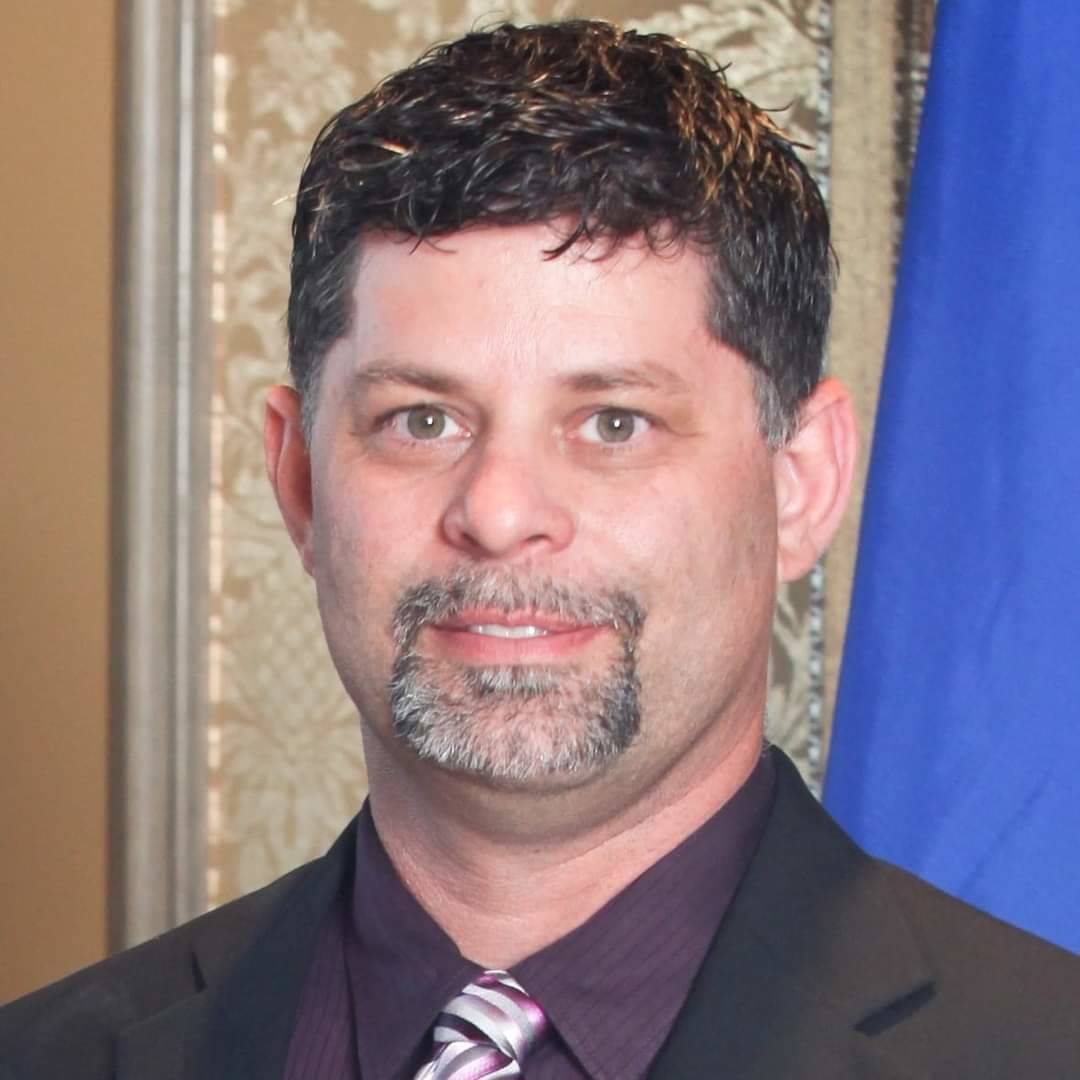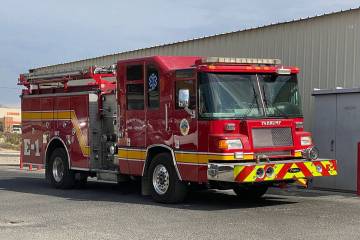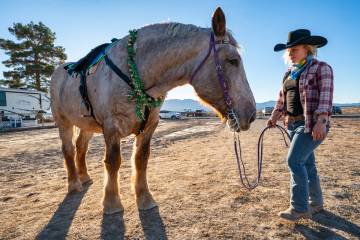Three vying for VEA district 1 seat
It’s election season at Valley Electric Association and that means it is decision-making time for thousands of member-owners who reside in the utility’s district 1 and district 3 service areas.
For those in district 3, which covers Beatty, Sarcobatus Flat and Scotty’s Junction, the choice will be an easy one as there is just one candidate, Rob Shirley, on the ballot. For those in district 1, which is all those living in Pahrump south of Highway 372, however, the decision will take a bit more thought and consideration. There are three contenders vying for the member-owned co-op’s district 1 board of directors seat, with current board member Michelle Caird seeing challenges from two local residents, Bill Carns and Pete Gazsy.
In an effort to help member-owners gain some familiarity with each of the candidates, a Virtual Candidates Night Forum was held on Thursday, March 11 via Zoom. The moderator for the evening was VEA Executive Vice President of Human Resources Bart Thurgood, who gave viewers and participants an overview of how the event itself and the elections process would work this year.
“This is our very first ever virtual forum… with the candidates, so that is pretty exciting,” Thurgood stated after welcoming everyone to the forum. He explained that VEA conducts elections each year, with two of its districts up for election in each cycle. Board members are elected to serve three-year terms.
“Due to the district meetings being held virtually this year, in-person voting will not be an option for this election. The winner of the election will be announced at the virtual district 1 meeting on April 29. The winner will also be posted on VEA’s website,” Thurgood stated.
Introductions
Moving into the forum, each of the candidates was given the chance to provide an introduction, with a two minute time limit.
“For the last two years I have been serving on the VEA Board of Directors. Before that, while I lived in Spokane, Washington, I had 18 years on the electric cooperative board up in that area. We were the largest co-op in Washington state. So I have almost 20 years of experience serving on electric boards,” Caird stated. In addition to this pertinent background, Caird comes with experience in a variety of other areas, including organizational management, criminal justice and accounting. She is also a certified mediator.
Gazsy told audience members that he has been a member of VEA for over 29 years and he loves both the people of the valley and the co-op itself. He comes with an abundance of experience with VEA, having served as a board member for 10 years, resigning in 2019. “We’ve had our ups and downs over the past 10 years but if you look at how we stand, with the co-ops around the country, with our rate structure and how we are looked up to, VEA is within the top 5% of all the co-ops in this country and I am proud to be a part of that legacy,” Gazsy stated.
He added that he is currently working with the Nye County School District and holds degrees in both Associate of Applied Science and business management from New York City Community College Vorhees Technical Institute, as well as a degree in offset lithography. He has attended over 42 National Rural Electric Cooperative Association schools and had obtained a gold certification as a board member. Gazsy said he is also a member of 14 local service organizations.
Prepared questions
Thurgood then opened the prepared questions portion of the event, with three questions posed to each of the candidates. The first question asked candidates to explain one of the most difficult or complex decisions that they have had to make, and the process they used to arrive at that decision.
Caird spoke to something that she had faced when serving as an electric co-op board member in Washington. At a time when Hawaiian Electric Cooperative was just beginning, the CEO of the co-op for which Caird served had requested that his board allow him to leave Washington for Hawaii, for an entire year. Weighing this against the needs of their own customers, Caird said the board had chosen the release the CEO, which was somewhat traumatic for the co-op. However, she said she felt it was the best decision. “Together, we chose to take care of our co-op first and watch out for our members before allowing him to go off to another CEO position far off in Hawaii,” Caird said.
For Gazsy, his toughest decision related directly back to his time on VEA’s Board of Directors. “We had to maintain our cost of power in a period of time with high unemployment all around the country, especially in Pahrump, and with our senior citizens not getting any increases in their Social Security or pension payments,” Gazsy said, referring to the Great Recession. “We as a board, I myself included, made a conscience decision to forego any rate increases for that period of time… It was very difficult. It put a lot of strain on the co-op, financially and mentally on the staff but we felt it was a conscience decision to make.”
The second question focused on board committees, with Gazsy stating that he felt he would be most comfortable with the co-op’s finance committee. Caird said she tended toward the finance, member liaison and policy committees, of which, prior to being voted in as president of the board of directors, she had served as chairperson for each.
The final prepared questions inquired what were the candidates’ most interesting experiences relating to boards and the most important things they have learned about serving in such a capacity. On this topic, both Caird and Gazsy had similar answers, remarking that serving on a board requires the ability to listen to the viewpoints of all board members before making a decision. Working with others, the two stated, is key.
Publicly submitted questions
It was then time for the questions submitted by the public. Thurgood explained that all of the questions put forward by members had been entered into an online system that was to randomly select which questions would be posed, with three to be asked of each candidate.
For Caird, the randomly chosen questions included queries regarding her position on residential solar versus commercial solar plants, her ideas for lowering the costs paid by member-owners and whether or not Caird had ever been arrested and whether she felt she modeled co-op values. Caird said in her opinion, both residential and commercial solar have their place and are needed. She remarked that for her, the real focus is not necessarily lowering costs but rather, maintaining them and keeping them stable. As for past run-ins with the law, Caird said she had never been arrested and noted that she does feel she models cooperative values, with a strong belief that working collaboratively is imperative.
Gazsy’s three publicly submitted questions all revolved around his previous time on the VEA Board of Directors. The first asked whether he would work to roll back the 9% rate increase implemented in 2019 while the second asked why he was running for the board again after having resigned. The third questioned why member-owners should vote for Gazsy when he was part of the board during the time of intense turmoil that VEA had experienced in recent years.
As to the possibility of reversing the 9% rate increase, Gazsy said he didn’t believe that was something he would do. However, Gazsy did say he felt that VEA’s rate structure could do with some adjustment, adding that he would like to see a cost of service study performed to see if an increase in the facility fee charged to all customers would be prudent, which, if accomplished, could result in some adjustment to the cost per kilowatt hour charged.
When it came to why he was running again and why voters should choose him, Gazsy said he had voluntarily stepped down because of the ruckus being caused by a particularly vocal subset of the co-op’s member-owners and that he had always intended to try his hand at being a board member again in the future. The financial problems faced by the co-op over the past few years, he added, were the result of the utility keeping its rates artificially low during the recession, a decision he said he may have made differently given hindsight but one which he felt had been made with as much forethought and consideration as possible at the time.
Carns joins in
By this point, Carns, who had been running late due to weather over the pass from Las Vegas, which had delayed his arrival at the event, had joined the forum. Thurgood gave Carns the opportunity to provide his two-minute introduction and then moved right into asking Carns publicly submitted questions.
“I have quite a vast array of life experience that I have gone through,” Carns said during his introduction, noting that he has been a resident of Southern Nevada for more than 40 years. “With that, I have noticed, certainly over the past 16, 17 years, how things have been going with VEA. There are a lot of challenges that are upcoming with the new ballot measure that was passed that changed the state constitution to require 50% renewable energy be sold. That could be a nightmare,” Carns stated.
He said he feared that such a change could even result in dramatic increases in power costs to customers and as such, he would be focused on ensuring that overhead at VEA is as low as possible while still being efficient so that reliable power could be provided at a reasonable cost.
Carns’ public questions asked how he would plan to promote transparency and accountability as well as why voters should choose him knowing that he had had a brush with law enforcement several years ago, in 2015.
Carns said he believed it was important to impress upon VEA’s staff and board that the member-owners are at the top of the co-op and that they must have access to all of VEA’s documentation regarding its action, save those specific to Human Resources issues. “As member-owners, they need to be able to understand everything that, legally, they are able to see, should be made available to them,” Carns said. “If there is anything accounting related, if there is anything related to buyouts or early retirements, anything like that, which has historically been difficult and sometime impossible to get from VEA, that needs to be made available…”
On his 2015 arrest, Carns said that instance had never resulted in charges being filed by the Nye County District Attorney’s Office, asserting that he felt the situation had been politically motivated.
The Virtual Candidates Night Forum then came to its conclusion, with Thurgood thanking everyone for attending and reiterating the process by which member-owners can cast their votes in the district 1 election.
Voting process
The election will be administered by a company called Survey and Ballot Systems. There are three ways for member-owners to take part in the election, including by mail, online or by dropping off ballots in person at VEA’s main campus in Pahrump.
Mail-in ballots began to make their way to members of district 1 on Monday, March 15. These ballots must be postmarked no later than Thursday, April 15 and received by Survey and Ballot Systems by Tuesday, April 20 in order to be counted.
Online voting is available at www.vea.coop and will close at 9 a.m. on Tuesday, April 20.
Hand-delivered ballots can be placed in the drop-off box at VEA’s main campus, 800 E. Highway 372, until the close of business on Wednesday, April 14.
The winner of the district 1 election will be announced at the virtual district meeting, set for 5 p.m. on Thursday, April 29. That meeting, as well as the district 3 meeting on April 27, will be available through the co-op’s website. Bios of each of the candidates are also available on the co-op’s website.
Contact reporter Robin Hebrock at rhebrock@pvtimes.com


